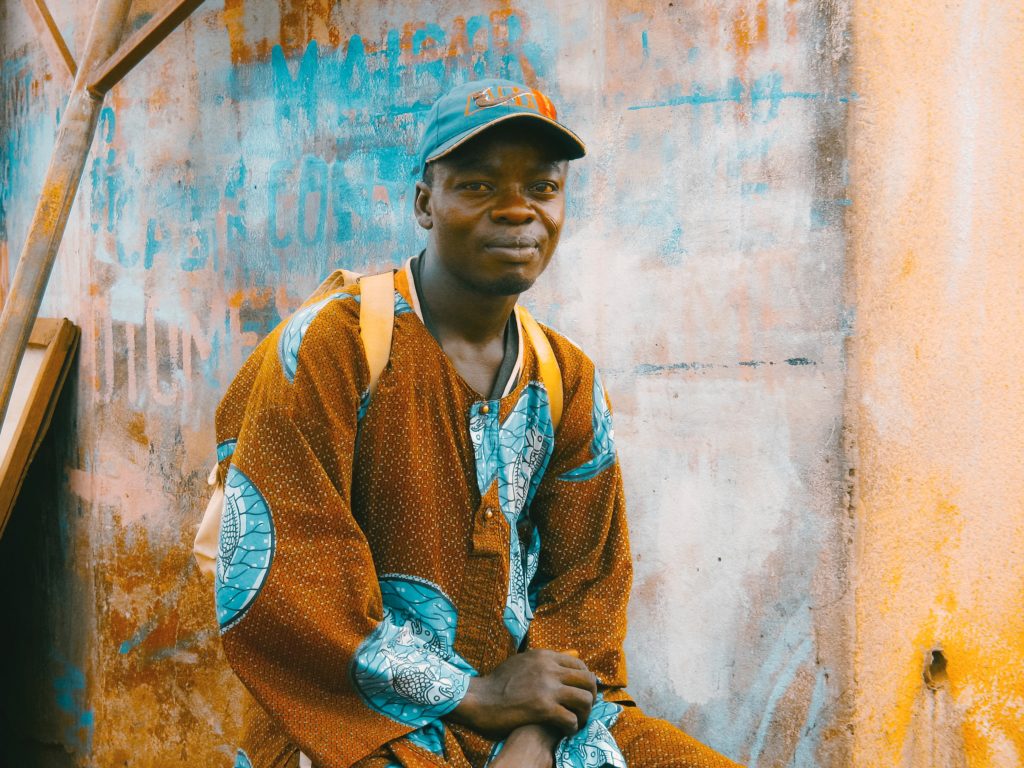by Juli McFarland // July 2017
One of RCE’s primary functions is research. In 2017, we’ve focused our efforts on researching the investment landscape in Rwanda. Today we’re sharing this piece from researcher and Regent student, Juli McFarland, that outlines and introduces the current state of affairs.
…

Over the last few years, investments in Rwandan businesses has increased significantly. Two decades ago, the country was violently ripped apart by a mass ethnic genocide that essentially left the country in shambles, but, since then, Rwanda has been able to recover in many aspects, and primarily in terms of its economy. As a result of the strong rebounding and growth, the Rwandan economy has proven to be ideal for continued investments, both foreign and domestic. This investment has focused on small and medium enterprises as a means of building up the economy and ensuring that it can weather any serious fluctuations. The future of this continued investment looks bright.
According to the United Nations, the Tutsi in Rwanda became the victim of genocide efforts beginning on April 7, 1994, and lasting for over three months (Hutt, 2016). Nearly a million people were killed, which caused the Rwandan economy to slide into havoc (Hutt, 2016). Following the genocide, foreign governments sent massive amounts of aid, as a means to help bolster Rwandan economy, and even today, about 40% of the country’s total funding and budget is sourced from foreign aid (Hutt, 2016). Today, the country’s economy is considered to be one of the “fastest growing economies in Central Africa,” with a GDP that increases by about 8% on an annual basis (Hutt, 2016). Despite the growth, more than half of the country’s citizens live in poverty and survive on about $1 per day (Hutt, 2016).
One of the main reasons for continued investments into the economy of Rwanda is that there is a continued need for jobs on the part of the country’s residents (Walker, 2017). It is estimated that about 90% of the population in the country supports itself through agriculture, which contributed to the persistent poverty (Walker, 2017). Additionally, much of the country lacks proper infrastructure, in the form of roads and other paved highways that would allow for a greater degree of connectivity between major populated areas (Walker, 2017). Combined, these challenges stunt the overall growth of the country and can prevent its economy from reaching its full potential.

Many new start-ups and fledgling companies in Rwanda run into the issue of not being able to secure needed capital and financing (GroFin, 2016). Additionally, although the economy of Rwanda has improved exponentially in recent years, there is still not enough managerial and knowledge support for companies beginning their operations within the country (GroFin, 2016). As such, investment into Rwandan-based enterprises not only provides access to funds but also assistance with operational challenges that result from issues that the country is still facing, such as inadequate infrastructure. This type of investment and assistance can be critical in terms of “strengthening value chains and building markets” in the country’s still-developing and growing economy (GroFin, 2016).
RCE founded the Rwanda Business Development Center (BDC) in 2010 to help fill the skills and investment gap for SMEs in Rwanda. The BDC, which equips entrepreneurs to start and grow businesses, was established by RCE in 2010 and licensed to two BDC graduates in 2016. It is participating in the growing ecosystem of SME development through its training, which has produced hundreds of businesses, and through its Investment Expos, which connect international investors with promising Rwandan SMEs. A recap of the most recent Expo in Kigali in Spring 2017 is coming soon.
Recently, the Rwandan government, working with several major banks and the government of Germany, implemented an initiative to increase exports out of the country and to support Rwandan business organizations that thrive in the export industry (Uwanziga, 2016). The initiative focuses on SMEs, or small and medium enterprises, and is aimed at helping these types of Rwandan companies gain access to funds that support the exporting function (Uwanziga, 2016). Beyond focusing on the organizations that already export products to other countries, the initiative also centers on identifying companies that can potentially export and easing them through the process of becoming active in the export industry (Uwanziga, 2016).
The Export Growth Fund, as this initiative is known, has already invested about 8.5 million Euros into the Rwandan export industry and focuses on specific sectors of the economy, which include “horticulture, agro-processing, artisanal mining, and manufacturing” (Uwanziga, 2016). Along with the major banks that have already become a part of this project, it is projected that various smaller banks in the country and abroad will also become involved through micro-loans and other commercial investments (Uwanziga, 2016). The goal of this initiative is to spur innovation and economic expansion (Uwanziga, 2016). As part of this partnership, it is also expected that the number of available jobs in the country will increase over time (Ministry of Trade and Industry, 2016).
Beyond this initiative, Business Partners International cooperated with the Rwanda Enterprise Investment Company, Stichting DOEN, and the International Finance Corporation to create the Rwanda SME Fund (Business Partners Limited, 2017). This SME fund is also focused on small and medium companies operating throughout Rwanda and aims to support sustainability, as well as the overall creation of wealth (Business Partners Limited, 2017). Essentially, the fund creates a safety net for participating businesses, as it partners with them in order to reduce operating risks as well as to provide start-up capital that they would not be able to obtain through more traditional financing channels (Business Partners Limited, 2017).
Rather than follow a set template of investing, the fund customizes the assistance that it provides to each of its member companies so that they can have access to their required cash flows (Business Partners Limited, 2017). Much of what the fund does, in terms of investment, can be summarized as “secured loan financing, unsecured cash flow financing, and minority equity financing, which provides preferential cash flows “to the target companies (Business Partners Limited, 2017). Following initial investment and funding, the fund also uses its Technical Assistance Facility to prove additional services that would increase the value of its target companies and help them to succeed in the long-term (Business Partners Limited, 2017).
Overall, it is clear that the present state of investment into the Rwandan economy is heavily concentrated on small and medium business enterprises, as these form the bulk of the economy and are poised to strengthen and grow over time, making a positive change to Rwanda’s economic outlook. Investment is also focused on optimizing the sustainability of existing and newly forming corporations so that they can persevere over time and create a strong network (Ministry of Trade and Industry, 2016). Additionally, rather than focus solely on the provision of the initial capital to startups, investing activities also expand to include technical assistance so that companies can become more competitive within the global economy (Ministry of Trade and Industry, 2016). Due to the previously stunted economy in the country, some companies continue to struggle with “management, marketing, and operational inefficiencies,” which are also targeted through these investing initiatives (Ministry of Trade and Industry, 2016).
In the future, it is projected that investment in Rwanda will continue to focus on “socially responsible financing,” with the aim of the creation of additional jobs and the continued easing of the poverty that is still crippling much of the nation (IFC, 2011). Investment initiatives are projected to partner with local enterprises to work directly with smaller and medium sized local enterprises to ensure that they can survive and increase in their size and operations (IFC, 2011). In order to further anchor the Rwandan economy, it is estimated that these initiatives will be based on local knowledge that will be used to create business models that can thrive in the global business and economic environments (IFC, 2011). As such, much of the assistance, beyond funding, will be allocated to such functions as the training and skill development of employees and the improvement of business efficiency and operations (IFC, 2011). Future initiatives will likely also focus on ethical operations and ensuring that companies look towards the future in terms of environmental and social responsibility (IFC, 2011).
From a Christian standpoint, in the future, aid and support, as well as investment, should come in the form of helping the country’s poor gain the tools that they need to improve their lives and economic situations. Presently, many children do not obtain a proper education, as it is more economical for them to stay home and help their parents farm their plots of land (Walker, 2017). Additionally, many children are consistently malnourished due to a lack of resources, while the women of the country are overburdened by needing to perform manual work (Walker, 2017).
As such, the future should focus on “increasing the availability and productivity of jobs” in Rwanda (Walker, 2017). In light of this, students can best prepare themselves for this type of a challenge by being aware of the challenges that Rwanda still faces and the present initiatives focused on sustainability that are being employed in the country. Additionally, students can also obtain finance and managerial skills and knowledge to best assist Rwandan companies in utilizing the funds available and helping to further expand the net of assistance that is currently being implemented in the country for these types of businesses.
In conclusion, it is clear that the economy of Rwanda has greatly improved since the mid-1990s. Investment into the country’s small and medium companies has allowed these business enterprises to draw on needed funds and on the tailored business knowledge that is made available to them. Together, these investment efforts have expanded the operations and reach of these companies. In the future, continued Christian mentoring and support can help to further these efforts and anchor the country’s economy in a manner that will help it to become competitive within the global environment.
…
References
Business Partners Limited. (2017). Rwanda SME fund. Business Partners Limited. Retrieved from http://www.businesspartners.co.za/about-bpi/our-funds-investors/rwanda-sme-fund/
GroFin. (2016). GroFin: SME finance/Business loans company. GroFin. Retrieved from http://www.grofin.com/
Hutt, R. (2016, April 7). 5 things to know about Rwanda’s economy. World Economic Forum. Retrieved from https://www.weforum.org/agenda/2016/04/5-things-to-know-about-rwanda-s-economy/
IFC. (2011, June 2). IFC encourages Rwanda’s entrepreneurs, smaller companies with investment in Business Partners fund. International Finance Corporation. Retrieved from http://ifcext.ifc.org/IFCExt/pressroom/IFCPressRoom.nsf/0/A2E5C3AF3927E293422578A30058AF6B?OpenDocument
Ministry of Trade and Industry. (2016). BPI: Rwanda SME fund, a great contribution to the SME development in Rwanda. Republic of Rwanda Ministry of Trade and Industry. Retrieved from http://www.minicom.gov.rw/index.php?id=24&tx_ttnews[tt_news]=260&cHash=04f438311552c543f654f9c9641b753c
Uwanziga, A. (2016, November 23). Govt launches Rwf7.5bn fund to support exporters. New Times. Retrieved from http://www.newtimes.co.rw/section/article/2016-11-23/205600/
Walker C. (2017). Rwanda journal: Dear Dave. Next Billion. Retrieved from https://nextbillion.net/dear-dave/
Walker, C. (2017). Rwanda journal: Funds for East Africa’s SMEs. Next Billion. Retrieved from https://nextbillion.net/funds-for-east-africas-smes/
Walker, C. (2017). Rwanda journal: Vision 2020. Next Billion. Retrieved from https://nextbillion.net/rwanda-vision-2020/

![Investing in Rwanda [Part 1]](http://regententrepreneur.org/wp-content/plugins/revslider/public/assets/assets/dummy.png)